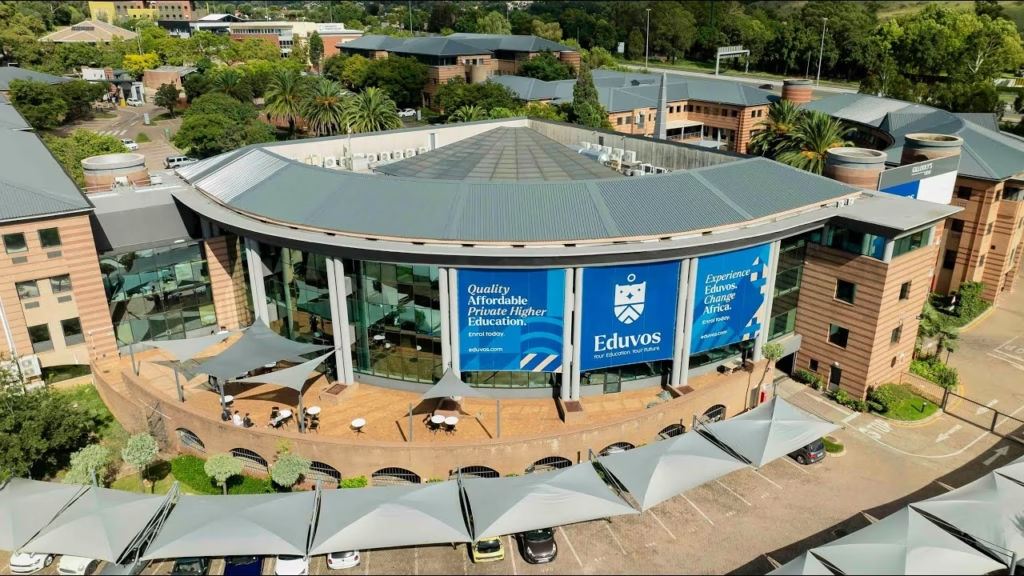For too long, academic research in South Africa and across the African continent has lived in lecture halls and academic journals – valuable in theory, but too often far removed from the urgent challenges and lived realities of the people it is meant to serve. In an era of climate change, deepening inequality, rapid technological shifts, and the pressing demands of the Sustainable Development Goals (SDGs), this model must evolve.
We need research that goes beyond publication metrics and citation counts. We need research that is meaningful and sets out to transform lives and communities.
The true purpose of research goes beyond publishing papers. To be meaningful, research must transform lives, empower communities- and drive sustainable solutions. Our research must have real-world impact. The Eduvos 2023–2027 Research Agenda is built on this conviction: that academia – especially in Africa – must become a driver of practical solutions, social justice, and sustainable development.
Why this Shift Matters in South Africa and the Region
South Africa, like much of the continent, is navigating multiple, interconnected challenges:
- Climate change is disrupting food security, public health, and livelihoods—particularly in rural and coastal communities.
- Artificial intelligence (AI) and new technologies are reshaping societies faster than laws and policies can keep up and adapt.
- Economic inequities, many rooted in histories of colonialism and apartheid, continue to undermine access to education, healthcare, and decent work.
Across the Southern African Development Community (SADC) region, similar dynamics play out: youth unemployment remains high, infrastructure gaps persist, and marginalised communities are often excluded from shaping the policies that affect them most. These challenges are interconnected, and their urgency grows everyday.
Traditional research models while valuable, often move slowly and remain trapped in silos. Africa cannot afford to wait years for solutions to emerge from behind paywalled journals while real challenges intensify. Our universities and research institutions must rethink how knowledge is created and applied/shared – focusing on research that speaks to local realities/contexts while still driving global solutions.
Guiding Principles for Impactful Research
Four guiding principles anchor our work in making African research relevant, responsive, and responsible:
- Transdisciplinarity: Africa’s most pressing challenges – climate adaptation, public health, AI ethics – cannot be solved in isolation and require collaboration that bridges disciplines. We encourage integration between fields as diverse as governance, biotechnology, data science, and education innovation to produce solutions that are both contextually grounded and culturally relevant.
- Technological Responsiveness: Emerging technologies hold enormous promise for Africa’s growth – but without critical engagement, carry the risk of deepening divides. Research must pair innovation with ethical scrutiny, ensuring that AI, data science, and related tools are developed and used in ways that promote and advance inclusion, equity, and sustainable growth.
- Community and Societal Engagement: Knowledge must be co-created with the people it seeks to benefit. We prioritise research that amplifies underrepresented voices – particularly those from historically marginalised groups – and focus on outcomes that deliver tangible benefits, from policy reform to economic opportunity.
- Sustainability and Ethics: We align our work with the UN SDGs, the African Union’s Agenda 2063, and the SADC Vision 2050. We embed social and environmental justice in every stage of research, recognising that human well-being and planetary health are inseparable.
Thematic Focus Areas for African Realities
Our research priorities reflect this mission and tackle the issues that matter most. They include advancing social justice and governance, fostering sustainable entrepreneurship, leveraging AI and data for social impact, driving biotechnology for food security and public health, and innovating in education to enhance and strengthen diversity, identity, and well-being.
In Data Science, AI, and Emerging Technologies, we explore how these tools can address Africa’s infrastructure, education, and healthcare challenges, while navigating risks such as algorithmic bias and unequal access. In Biotechnology and Environmental Sustainability, our work tackles climate resilience, sustainable agriculture, and access to clean water—critical to the continent’s long-term prosperity.
Enablers of Impact
Ambition alone is not enough to realise this vision – impact requires action and a strong foundation for delivery:
- Curricular Integration: Integrate real-world research into undergraduate and postgraduate programmes so that graduates enter the workforce as problem-solvers from day one.
- Capacity Building: Equip students and staff with the research skills, mentorship, and networks to lead as innovators and engaged scholars.
- Partnerships for Change: Partner with industry, government, civil society, and communities to co-create solutions that can be implemented in real contexts.
- Alignment with Regional Agendas: Mapping outputs to SDGs, Agenda 2063, and SADC priorities to ensure local action contributes to collective progress.
- Responsiveness to Change: Continually adapting research priorities to new realities, from climate shocks to technological breakthroughs.
South African and regional higher learning institutions must come together in adopting these enablers of impact to turn knowledge into lasting impact.
Turning Knowledge into Action
The call for academia in Africa to focus on real-world impact is not a rejection of fundamental or theoretical research but connecting research to action. It is a call to bridge the gap between scholarship and society, between knowledge and action. Our universities, colleges, and research institutions are among the most powerful engines for sustainable development we have – if we choose to harness them with purpose. If we choose research for real-world impact.
African institutions have an opportunity to lead globally by rooting innovation in African realities, cultural knowledge systems, and community priorities. The problems we face are urgent, but so too is the chance to reimagine research as a collaborative, ethical, and transformative force.

